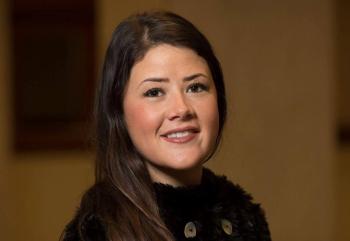Image Caption
Summary
On this second National Day for Truth and Reconciliation, we acknowledge and thank Phyllis Jack Webstad whose story began the Orange Shirt Day movement nearly a decade ago. Phyllis’ advocacy and leadership has led to this day being recognized in schools, offices and workplaces across Canada, shedding further light upon the truths that Survivors, Elders, and Indigenous communities have been sharing for decades.
On this National Day for Truth and Reconciliation—and every day—it is important to reflect upon the true history of this country as, collectively, we continue to learn about the dark chapters of the past and how they impact the present. It is crucial to know the truth and the profound consequences that this history has had on the lives of First Nations peoples; all of whom are either Survivors, or the children or grandchildren of Survivors. We reflect on where we have been and how far we have come, and these reflections enable us all to forge a reconciliatory path forward together. But before reconciliation, we must learn the truth.
Just over one year ago, the recovery of 215 young souls in Tk'emlúps te Secwépemc catalyzed calls to action from across the country. It created a renewed sense of pressure on the governments and the churches responsible for funding and running residential institutions to be accountable for the trauma, harm, and deaths they have caused. In the Yukon, it sparked the beginning of the deeply challenging but important work of the Choutla Working Group, led by co-Chairs and Elders Adeline Webber and Judy Gingell. We raise our hands in gratitude to Adeline and Judy for their hard work—and heart work—as they take on the heavy task of sharing the truths that these devastating institutions had on First Nations children and families within the Yukon and surrounding areas.
Through their leadership, and the leadership of many others in the territory, Yukon First Nation voices remain strong in all conversations of truth and reconciliation in this country. However, the National Day for Truth and Reconciliation also serves as a reminder that only a small fraction of the Truth and Reconciliation Commission’s Calls to Action have been implemented. The AFN Yukon Region joins the countless leaders across the country who continue to call for more accountability and concrete action from the Crown, governments, religious institutions, the public, and all who the TRC’s Report looks to for reconciliatory action. One of these most pressing actions is the release of records of those children who were forced into these institutions by the federal government, the Catholic Church, the Anglican Church, and others who funded and ran these ‘schools’.
Regional Chief Kluane Adamek shared, “before reconciliation, we must get to the truth. The families of those children who never came home deserve to have these records released, and the rest of the country must see them as well. Indigenous people have known the truth of our shared histories with Canada for generations because Elders, Survivors and truth tellers have been sharing them, despite how much trauma and pain they bring. We cannot lose these stories. We cannot let the broader Canadian public forget the grief and outrage that was collectively felt one year ago. We must hold the governments and churches accountable.”
Today—and this entire week—many join together with their communities from coast to coast to coast to honour Survivors, those who never made it home, and those who remain burdened by the traumas that they have experienced at the hands of colonialism. All First Nations people are impacted. These traumas are deeply embedded within our shared history, and continue to affect First Nation families and communities through ongoing mental health and wellness crises; a painful reality that Yukon First Nations are sadly far too familiar with.
The AFN Yukon Region encourages all people to take time today to seek out ways that they can do more for reconciliation in their communities, to learn the truth, and to learn about the people whose land this country has been built upon.
“Just over one year ago, I asked each and every Canadian to reflect on this question: What more can you do?” said Regional Chief Adamek, “my question still stands.”
Kluane Adamek, Regional Chief, Assembly of First Nations – Yukon Region

